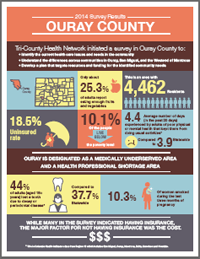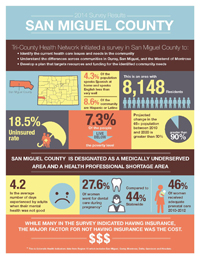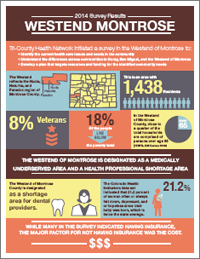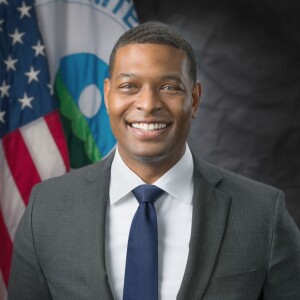Health Policy and Public Health: Past Projects
Healthcare-Associated Infections
Keystone’s work has resulted in recommendations that have strengthened public health’s responses to healthcare-associated infections. One recent report — based on in-person stakeholder meetings in Colorado, New York, and Tennessee as well as more than 80 stakeholder interviews of health care practitioners, consumer representatives, public health officials, and other healthcare-associated infection experts in California, Illinois, Massachusetts, Nevada, Pennsylvania, South Carolina, and Washington — explored how policy strategies, including public reporting laws, could affect healthcare-associated infection rates.
Colorado Strategic Action Planning Group on Aging
Keystone worked with SAPGA to develop a series of recommendations to help Colorado prepare for its growing aging population. Keystone provided the Planning Group with assistance as it developed its strategic plan, drafted the plan itself, and communicated with the public about its urgency and importance.
Affordable Care Act Premiums in Colorado
Colorado Community Health Care Needs
Colorado Personal Belief Exemption Policy for Vaccinations
Through the summer and fall of 2013, Keystone facilitated 10 sector specific focus group meetings, key informant interviews, and three stakeholder meetings in which recommendations were developed for decision-makers and partners involved in the state’s personal belief exemption policy for immunizations. These recommendations helped to inform legislation regarding the state’s personal belief exemption for immunizations (House Bill 14-1288).
Meningococcal Vaccination for Children
The Centers for Disease Control and Prevention and the Keystone Policy Center worked together in 2011 to gather input from the public and national stakeholders to inform decision-making related to the childhood immunization schedule. The Keystone-led process engaged 277 local stakeholders and interested members of the public in a pilot project designed to get input regarding the values that could inform Advisory Committee on Immunization Practices recommendations about whether or how to add new vaccines to the childhood immunization schedule. Participants had a general discussion about vaccines that protect children from rare but severe illnesses and a specific discussion about recently licensed and soon-to-be licensed meningococcal vaccines for infants.
The four public meetings were part of a process that also engaged national-level stakeholders in the same discussion. National stakeholder meetings involved participants from a number of organizations, including the American Academy of Pediatrics, the American Academy of Family Physicians, the National Association of Pediatric Nurse Practitioners, the Heritage Foundation, the National Meningitis Association, Meningitis Angels, and Women in Government.
H1N1 Public Engagement
During the summer of 2009 the team managed ten public meetings, two web engagements, and one stakeholder meeting that brought more than 2,000 members of the public and key stakeholders into dialogue with CDC staff and among one another regarding the optimal scale and pace of the vaccination program.
National Vaccine Safety System Stakeholder Engagement
The Research Integrity Roundtable
The product of 18 months of stakeholder dialogues, the roundtable’s 2012 report, “Improving the Use of Science in Regulatory Decision-Making: Dealing with Conflict of Interest and Bias in Scientific Advisory Panels, and Improving Systematic Scientific Reviews,” built on the Bipartisan Policy Center’s groundbreaking 2009 report, “Science for Policy Project: Improving the Use of Science in Regulatory Policy.” Keystone’s work focused on the following questions:
- How should scientific advisory panels be composed and how should the qualifications of prospective panelists be vetted?
- How should concerns about biases and conflicts of interest of advisory panelists be handled?
- Which studies should agencies review when examining the scientific literature related to a regulatory policy issue, and how should those studies be evaluated and weighted?
- How should contending views regarding the relevance of particular scientific results to a regulatory issue and the credibility of those results be addressed?
LiveWell Colorado Strategic Planning
Zika Planning & Engagement in Los Angeles County
The Keystone Policy Center partnered with Los Angeles County to host a series of community workshops to examine strategies to inform local responses to the Zika virus and other vector borne illnesses. Keystone’s work — which built on extensive work developing collaborative strategies to confront public health challenges and building public engagement — informed Los Angeles County’s strategy, investment, and communications for vector control, public health, and preparedness.
Enhancing Healthcare Infection Control Assessment and Outbreak Response
Following the recent Ebola outbreak and the needs it highlighted for more robust infection control assessment and response plans, the Keystone Policy Center is partnered with the Association of State and Territorial Health Officials and the Centers for Disease Control and Prevention to convene a national effort to identify best practices and valuable implementation steps. Through a combination of site visits in select states and extensive regional meetings involving cross-sector teams from states and other participating jurisdictions, Keystone designed and facilitated a dialogue focused on determining strategies for optimizing the capacities of public health agencies in responding to infectious disease incidents. The discussions culminated in a report providing guidance at the national, regional and state levels, as well as state-specific action plans.












